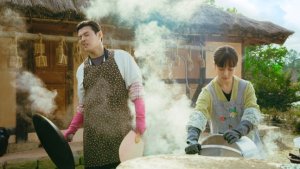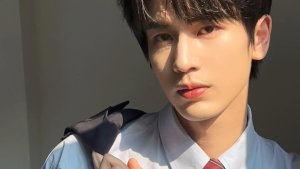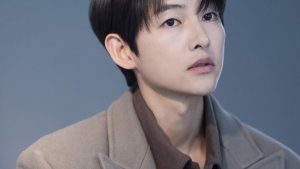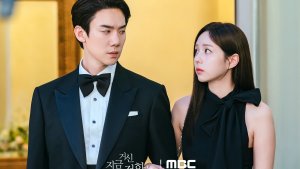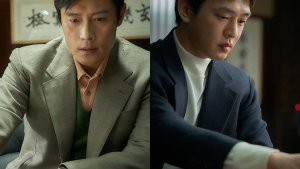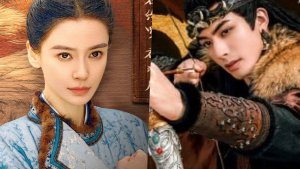 Choi Woo Shik, Park Bo Young, Lee Jun Young, Jeon So Nee's stills from 'Melo Movie' unveiled
Choi Woo Shik, Park Bo Young, Lee Jun Young, Jeon So Nee's stills from 'Melo Movie' unveiled
The Chinese drama Flourished Peony, starring Yang Zi and Li Xian, has concluded amidst high popularity in China. Recently, the show's screenwriter, Zhang Yuan Ang, sat down for an interview with Sohu Entertainment to talk about the behind-the-scenes stories, the drama's message, and more.
Q: Flourished Peony is currently airing [interview conducted before the drama's conclusion]. Have you been watching it in real time?
Zhang Yuan Ang: I tune in every day at 8 o'clock sharp. It feels quite magical. Even though I know the story, I still eagerly anticipate each day to see how the production turned out.
Q: While watching, is there a particular comment that left a deep impression on you?
Zhang Yuan Ang: The comment that struck me the most was, "I will build a ladder to the sky with my blood, helping all women surmount the tallest of walls." Another one is the recent discussion about Sheng Yi [character played by Shao Yun], where someone said, "She's just walking a little slower. Let's wait for her." I can feel how deeply invested the audience is in the story, and as a creator, I find that very moving.
Q: Some screenwriters imagine specific actors in their minds while writing, and even tailor the dialogue and plot for them. When you were creating this drama, did you ever think about Yang Zi and Li Xian playing the lead roles?
Zhang Yuan Ang: Not at all while writing. I designed the characters and dialogue purely based on creative logic. When I found out that they were confirmed as the leads, I was pleasantly surprised.
Q: What is your evaluation of Yang Zi and Li Xian's performances in the drama?
Zhang Yuan Ang: They are absolutely amazing. For example, I've collaborated with Yang Zi three times so far. During the first two projects, I didn't have the chance to participate in the script reading sessions with the actors due to various reasons, which I always found regrettable. For Flourished Peony, both the director and producer paid special attention to the script-making [process]. As soon as the cast was confirmed, they arranged for us to meet face-to-face with the actors to discuss the story.
I still remember Yang Zi remarking at the time, "We've worked together multiple times, and this is the first time we're actually meeting." Talking with Yang Zi in person about the script made me feel that she is an incredibly mature and professional actor. She has her own unique insights into the story and has a strong understanding of it. I recall that even though there was still quite some time before filming began, she was already very familiar with a large portion of the storyline and dialogue. That is impressive.
During filming, she would always communicate her thoughts and suggestions with us promptly, constantly refining things. I believe that this kind of close communication played a crucial role in getting the drama to such a level of quality.
I'm also following the drama in real time, and so far, I feel like you can't see traces of Yang Zi's past roles in her performance. She is a fresh, flesh-and-blood image of He Wei Fang from the script through and through. This character is actually very layered and challenging to play, but I think Yang Zi has vividly presented the heroine's growth arc. She captures both the lively and cunning side of the character and her characteristics of being mature and capable as well. He Wei Fang is brave enough to fight [for what she believes in], yet she also exudes a delicate tenderness. The actress's performance is brilliant.
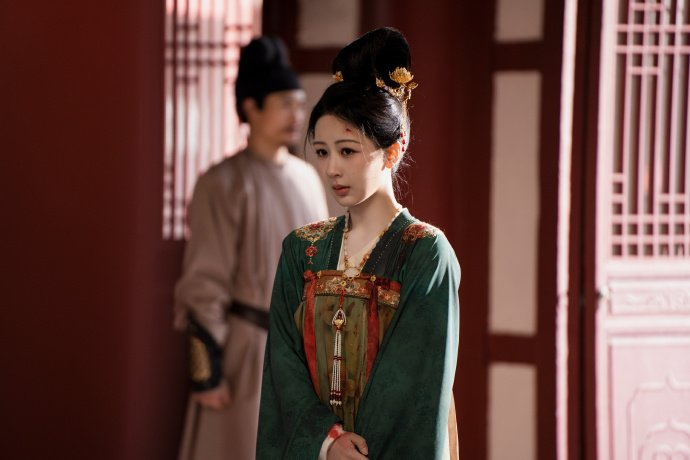
Li Xian's portrayal of Jiang Chang Yang also brought me many surprises. The character, as the Flower and Bird Envoy, has a dual identity, and capturing the nuances of his personality is particularly challenging. If he comes across as too roguish, it can feel cheesy; if too serious, he can be seen as being stiff. It requires the actor to strike a perfect balance, and I think Li Xian nailed it.
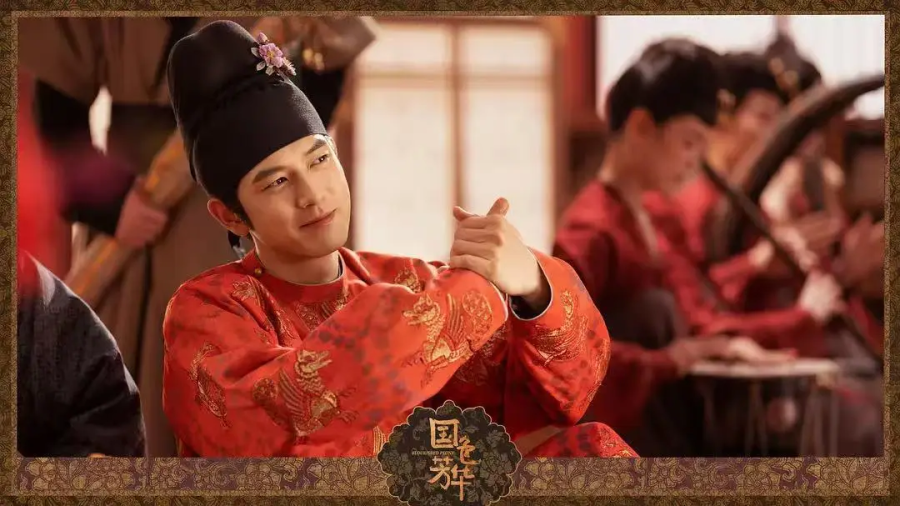
The scene that left the deepest impression on me was the one in the Luoyang courtroom. Initially, the Flower and Bird Envoy is teasing the Liu family with a mischievous smile. But when he turns to pressure the officials, Li Xian's expression and tone become heavy, creating a palpable sense of oppression. I could feel it strongly as a viewer. Yet, in the next moment, when he turns back, he effortlessly shifts to his smiling face. That moment captured the essence of Jiang Chang Yang. He was extremely precise.
Q: In the earlier episodes, He Wei Fang goes through a lot of challenges. When adapting this part of the story, did you ever feel hesitant or conflicted?
Zhang Yuan Ang: He Wei Fang goes from being a merchant's daughter fleeing a fraudulent marriage to becoming a wealthy businessman who serves her country. Such a transformation naturally means that she endured a hard time. However, He Wei Fang is not a tragic figure. She is introspective, never wallows in pitying herself [for all that she's been through], and often turns others' attacks on her into her weapons.
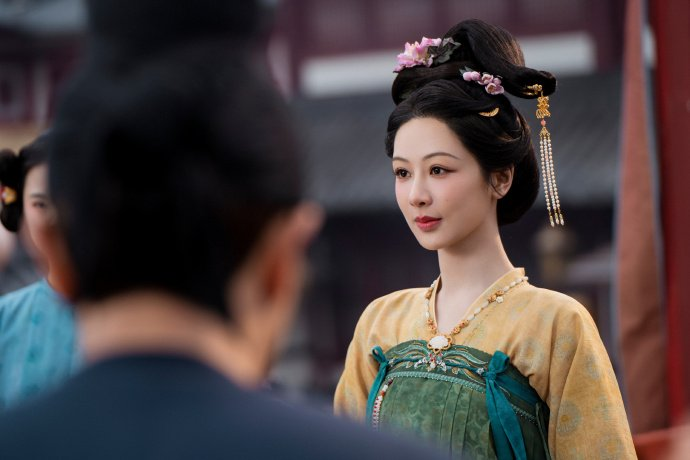
When audiences watch these plotlines, I hope they don't focus on the suffering, but instead, find the strength in He Wei Fang's breakthroughs and every time she is reborn [into a better version of herself] to fight against difficulties.
Q: In the drama, He Wei Fang saves herself from danger many times, and many viewers feel her mindset is quite progressive.
Zhang Yuan Ang: [Sometimes,] it's not that our thinking is ahead of the times. But it's likely that many people share similar thoughts. However, a story isn't always completely based on the screenwriter's ideas.
One of the fortunate things about Flourished Peony is that the ideas we wanted to convey resonated with the audience. We didn't add more melodramatic scenes or change our plotlines just for commercial considerations. Everyone worked together to preserve the essence of what we wanted to express.
Q: How did you balance portraying the female lead's independence while highlighting the male lead's charisma in the drama?
Zhang Yuan Ang: There's no need to balance the two because female independence and male charisma are not in opposition. They complement each other. If we were to highlight the male lead's charm by forcibly diminishing the [element of] female lead's independence, then, in the context of the drama, this would mean every time He Wei Fang faces a challenge and has to deal with it, Jiang Chang Yang descends from the sky [to save her], interrupting her efforts. That would signal distrust and disrespect for the female lead's capabilities.
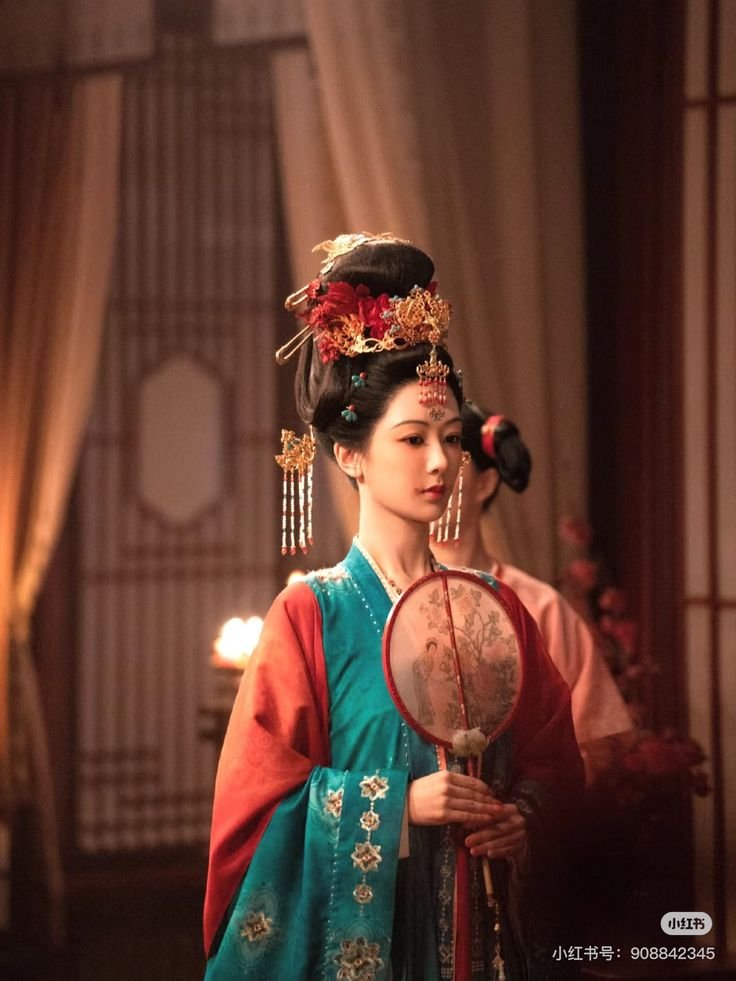
The way we designed the plotline between the leads follows this logic as well. Their story doesn't really begin until much later because they're not portrayed as naïve or ignorant youths. Both characters have already experienced the complexities of human relationships and the harsh realities of the world and wouldn't easily entrust their emotions to others.
At the very beginning of the story, it's made clear that they each have their own goals and things to do, and simply living to accomplish those is already an immense challenge. They don't have the time or energy to indulge in romantic matters. So, our setup was that the male and female leads must first be independent, exceptional individuals in their own right. Only after that can they gradually get to know and understand each other, and that would eventually lead to the possibility of developing feelings.
Q: Many viewers say that Flourished Peony is very unconventional and that there are many things that break the audience's expectations. Was that intentional?
Zhang Yuan Ang: I hoped that viewers would feel a sense of novelty while watching, so during the making-of process, I consciously incorporated some setups that defy expectations. However, this wasn't done just for the sake of twists or novelty. It's just that some tropes, though very common, aren't entirely logical. Audiences have grown accustomed to these tropes because they have just seen them so often, creating a kind of custom. I wanted Flourished Peony to break out of that custom and present a story that is logical.
Take, for example, the scene where Mu Dan helps Sheng Yi obtain her divorce. The male lead, rich and powerful, was willing to help, so viewers might have instinctively assumed the female lead would turn to him for help. But we immediately ruled out that option. Writing it that way would have its benefits — it could spark emotional tension between the leads — but the downside is that it would go against their characterizations.
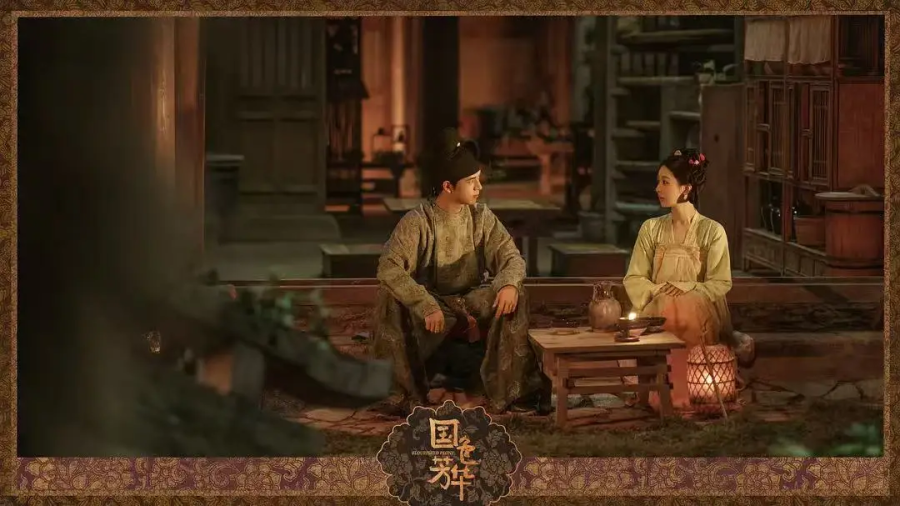
From Mu Dan's perspective, Jiang Chang Yang was, at that point, practically a stranger. She had just obtained her household registration through an unequal agreement, so she had no reason to take his help. On the other hand, Yun Niang was different. She had her eyes on Mu Dan's jade pendant but failed to buy it, and she was interested in an exchange. Plus, as a woman, she sympathized with Sheng Yi's plight. So she was a more logical choice than Jiang Chang Yang in that situation.
Q: Many of the plotlines showing women helping each other in the drama have deeply moved the audience. When creating these details, what kind of thought and consideration went into them?
Zhang Yuan Ang: First of all, as a woman myself, I'm surrounded by many amazing women who often help and encourage one another. The so-called 'female rivalry' that people talk about is something I see more on the internet than in real life.
From my observations and experiences, I believe women are full of wisdom and strength. Whether in history or in everyday life, there are many touching stories of women supporting each other, and, to a certain extent, some of those stories have made their way onto the screen. But I think there still aren't enough of them, because many people can't come to believe in the existence of this kind of mutual support among women.
Through these plotlines, I hope to show people a sense of moral integrity [that exists] between women. I want to offer some strength to more women and encourage them to bravely pursue whatever it is that they want to do and not to belittle themselves or suffer in silence.
Especially with the character of Qin Sheng Yi, I poured a lot of emotion when I was creating her. Some aspects of her story are based on the real-life experiences of some women I know. She has a strong tragic undertone, and many female viewers' comments show that they see parts of themselves in her. Through Flourished Peony, I want to convey the message to these 'Qin Sheng Yis' that the suffering and oppression they face are not things they should bear. The problem is not with them but with outdated shackles of societal rules and absurd conventions. I hope they will have the courage to resist.
Q: There's a phenomenon online called 'fragmented judgment,' where some viewers judge an entire show based on a single clip they've seen. What's your perspective on this, and how do you respond to it?
Zhang Yuan Ang: This isn't just happening with dramas. Nowadays, people consume information in bits from the internet. There's nothing we can do about it. Everyone is under great pressure from work and life, so people don’t have the time to understand the full picture of things. So it's normal for them to watch short clips or view screenshots. If certain clips from our drama manage to attract people, that's great. But as someone working in television, I hope that viewers can calm down and give more time and opportunity to the shows they are interested in and watch them till the end.
I am also pondering whether, in future projects, even a single clip could be crafted in a way that allows the audience to correctly interpret the storyline. But it's a tough challenge because it can bring in more traffic but if people fall in misinterpretation, then it [the consequences will be] hard to avoid.
Q: What are your expectations for the post-broadcast performance of Flourished Peony?
Zhang Yuan Ang: I hope it's not the kind of TV series that is just passing by, but rather a good work that can leave a lasting impression on the audience.
Source: Sohu Entertainment


